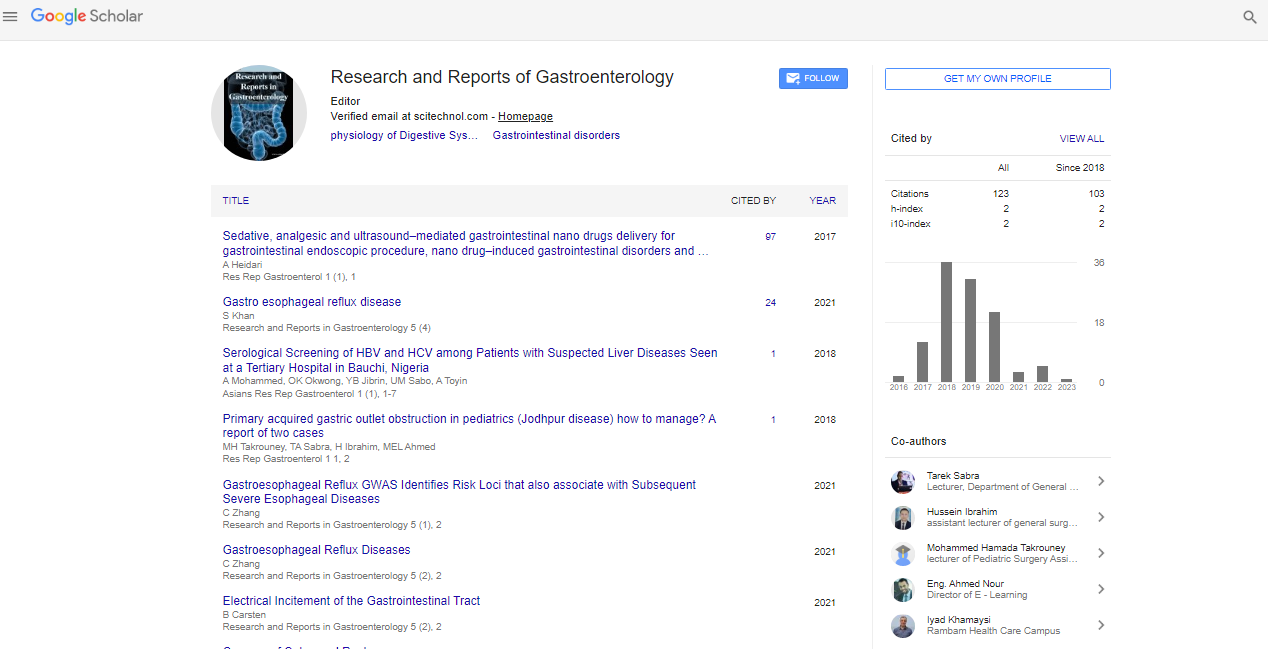Perspective, Res Rep Gastroenterol Vol: 7 Issue: 1
Muciniphila Regulated Metabolism and Its Role in Intestinal Diseases
Marta Svartman*
Department of DNA Diagnostics, St. Joseph's Hospital and Medical Center, Ohio, USA
*Corresponding author: Marta Svartman
Department of DNA Diagnostics, St. Joseph's Hospital and Medical Center, Ohio, USA
Email: svartman_m@zed.us
Received date: 20 February, 2023, Manuscript No. RRG-23-97815;
Editor assigned date: 22 February, 2023, PreQC No. RRG-23-97815 (PQ);
Reviewed date: 08 March, 2023, QC No. RRG-23-97815;
Revised date: 15 March, 2023, Manuscript No. RRG-23-97815 (R);
Published date: 23 March, 2023, DOI: 10.4172/Rrg.1000127
Citation: Svartman M (2023) Muciniphila Regulated Metabolism and Its Role in Intestinal Diseases. Res Rep Gastroenterol 7:1.
Description
Muciniphila is a bacterium that resides in the mucus layer of the gut and plays an essential role in regulating metabolism. It is part of the group of commensal bacteria that make up the gut microbiome and is known for its ability to break down mucus and produce Short-Chain Fatty Acids (SCFAs), which are crucial for gut health. Research has shown that changes in the abundance of Muciniphila in the gut can lead to metabolic dysregulation and the development of intestinal diseases.
Muciniphila is known for its ability to break down mucus and feed on the glycoproteins that make up the mucus layer. This process not only helps to regulate the thickness of the mucus layer but also produces SCFAs that are essential for maintaining gut health. SCFAs are produced by the fermentation of dietary fibers by gut bacteria and are the primary energy source for colonocytes, the cells that line the colon. SCFAs are also involved in regulating various metabolic processes in the body, including glucose and lipid metabolism, insulin signaling, and immune function.
Studies have shown that Muciniphila plays a crucial role in regulating metabolism and preventing metabolic disorders. In one study, researchers found that obese and diabetic mice had lower levels of Muciniphila in their gut microbiome than lean mice. When the obese and diabetic mice were given a probiotic supplement containing Muciniphila, their glucose tolerance and insulin sensitivity improved, and their body weight decreased. This suggests that Muciniphila may have a beneficial effect on metabolic health and could be a potential therapeutic target for metabolic disorders.
Muciniphila has also been implicated in the development of Inflammatory Bowel Diseases (IBD) such as Crohn's disease and ulcerative colitis. Inflammation in the gut can lead to the breakdown of the mucus layer, which can allow harmful bacteria to penetrate the gut epithelium and trigger an immune response. Studies have shown that Muciniphila can help to prevent this by maintaining the integrity of the mucus layer and promoting the growth of other beneficial bacteria in the gut.
In one study, researchers found that patients with Crohn's disease had lower levels of Muciniphila in their gut microbiome than healthy controls. When the patients were treated with a prebiotic supplement that promoted the growth of Muciniphila, their symptoms improved, and their gut microbiome became more diverse. This suggests that Muciniphila may have a protective effect against IBD and could be a potential therapeutic target for these conditions.
In addition to its role in regulating metabolism and preventing intestinal diseases, Muciniphila has also been linked to other aspects of health, including mental health. Studies have shown that Muciniphila can influence the production of neurotransmitters such as serotonin, which is involved in regulating mood and anxiety. In one study, researchers found that mice with low levels of Muciniphila had increased anxiety-like behavior and altered levels of neurotransmitters in their brains. When the mice were treated with a probiotic supplement containing Muciniphila, their behavior and neurotransmitter levels returned to normal. This suggests that Muciniphila may have a beneficial effect on mental health and could be a potential target for treating anxiety and depression.
In conclusion, Muciniphila is a bacterium that plays a crucial role in regulating metabolism and maintaining gut health. Its ability to break down mucus and produce SCFAs makes it an essential member of the gut microbiome, and changes in its abundance have been linked to metabolic dysregulation and intestinal diseases.
 Spanish
Spanish  Chinese
Chinese  Russian
Russian  German
German  French
French  Japanese
Japanese  Portuguese
Portuguese  Hindi
Hindi 